Here are the answers to yesterday’s transcription test. Note how there actually are some major differences in the “answers” copy. Names and words were Latin-ized. So I will give you the answer to the original.
1. Mičhal Leičht
Michael Leicht
2. Waczlaw Majer
Venceslaus Mayer
3.Ondřej Reidl
Andreas Reidl
4. Jakob Kostner
Jacobus Kostner
5. Ssebestian Fait podruh Zemitzky [day Laborer in Zemětice]
Sebastian feit Inquillinus [latin for day laborer]
6. Dorota Lishkowa
Dorothea Lishka [thinking of you, sistah!]
7. Pawel Hess
Paulus Hess
8. Ondřej Ress
Andreas Resh
9. Baltazar Radda podruh zemenžky
Balthazar Radda Inquillinus [uxor Catharina – and his wife Catharina]
Lesson learned: a double ss is the equivalent of š, or sh.







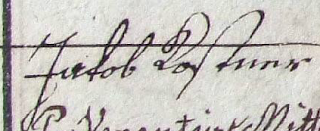

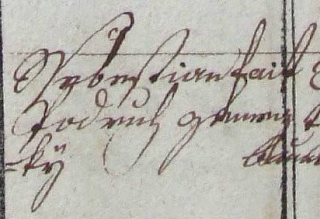


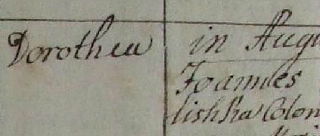


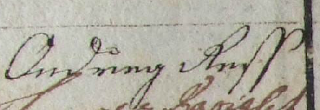


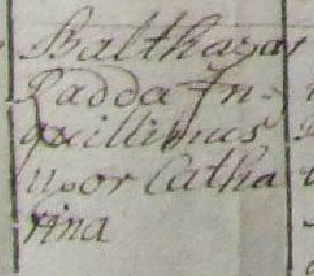
Mičhal Leičht? no!
c with háček is not č in this instance(case) it's c only
by czech is Michal Leicht
You are right, the Czech name is Michal Leicht. We both know that Mičhal is not a real name.
Here is my reason for transcribing č instead of c. Every instance of "c" or "č" on this page was written as "č". As a transcriber, I have a duty to write exactly what I see, even if it was not spelled correctly.
German Current handwriting conventions do not place the háček (btw, thanks for correcting me on the spelling of this word!) over a non-háček-ed c. Even though I noticed that the enumerator of this record chose to write all of his "c's" and "č's" the same, i.e. with a háček, I can't pick and choose which ones he meant to have a háček, and which ones he did not.
In German Current handwriting, there is a háček over every instance of "u". The person transcribing the word would not ever place a háček over this letter in a transcription. This diacritical mark seems to be to differentiate u's from n's, m's, c's, and other similarly shaped letters.
In any case, knowing that the enumerator meant to write Michal Leicht, I don't have a problem per se with somebody else transcribing the record Michal Leicht instead of Mičhal Leicht. My own personal preference is to write what I see exactly as I see it, and I see a háček.
It's an interesting discussion, though! I appreciate it! Thank you for reading and commenting 🙂